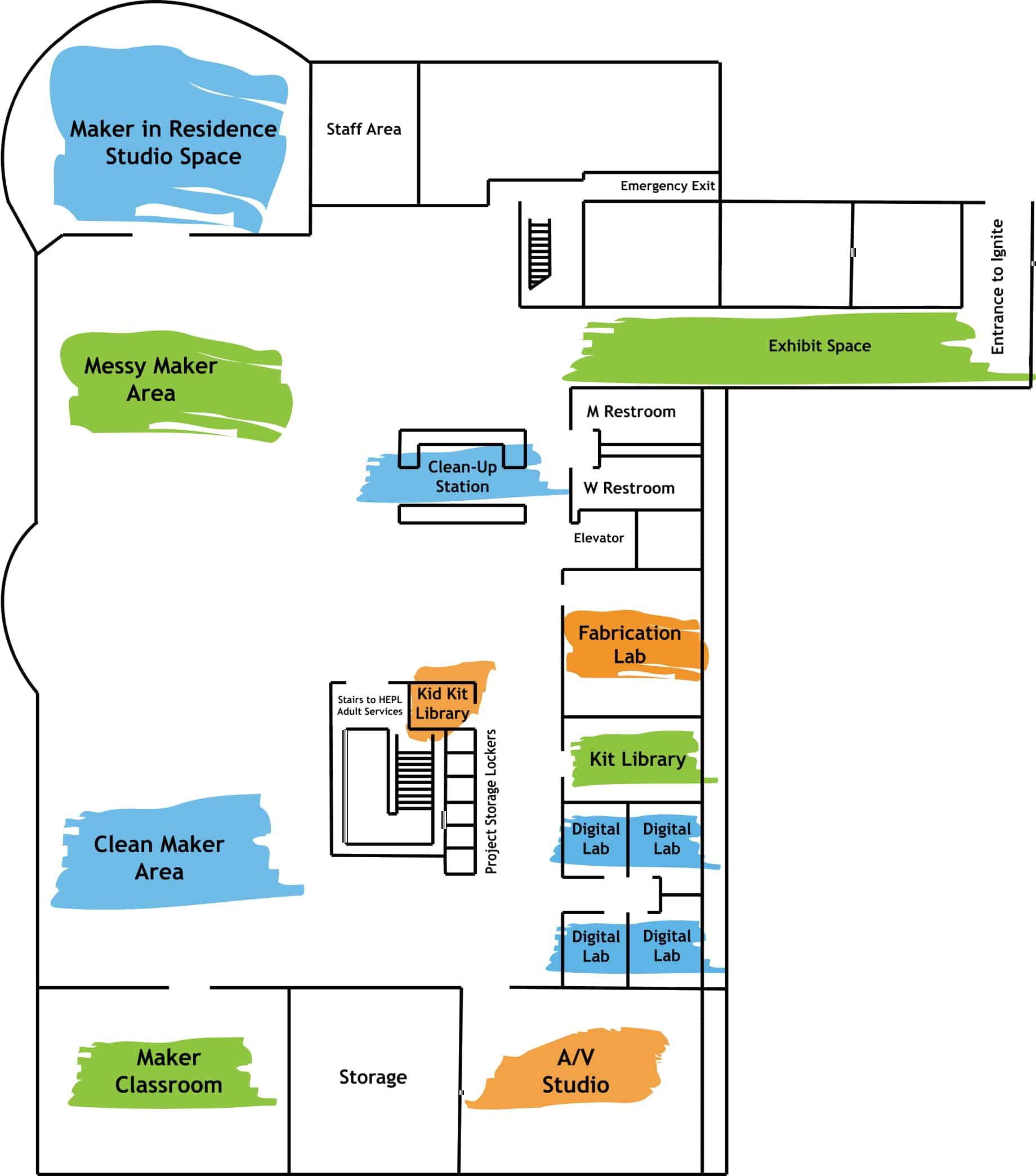By Daniel Wiseman
Need to do some hardware repair? Working on an arduino? Building a robot? We have you covered with new soldering tools available at Ignite! In this blog, I’ll go over what soldering is and how to use the tools we have available.
You MUST be 16 or older to use this kit! And you must watch the Soldering Safety Guide prior to use.
What is Soldering?
If you’ve ever examined a circuit board for an electronic device, you may notice the metal-like bumps on the board–this is known as solder.
Soldering is the process in which two different types of metal are joined together by melting solder. For instance, if we want to connect a cable to a circuit board, we insert the metal wire of the cable through a hole in the board and melt the solder onto the wire where the hole is. This creates a strong connection between the wire and board.
Safety & Tools
Because the equipment we’re working with is electric and will be hot, there are a number of safety protocols you must follow in order to complete the soldering process safely.
Before you get started with this tool, please make sure you’re wearing the following items.
- Heat Resistant Gloves
- Safety Goggles
- Smock or Apron
- Damp Sponge or Rag
Some things to keep in mind when using the soldering tools are:
- Do not touch the soldering iron by the heating element, especially the tip.
- Don’t allow the iron to come in contact with any plugs or electrical cords.
- Do not have any food or drinks in your working area.
- Make sure you have plenty of space to work with.
- It’s a good idea to wear a long sleeve shirt while working to reduce the
chance of serious burns.
If you happen to be burned at all with the kit, we have burn cream and other first aid inside the first aid kit located near the fab lab.

Now let’s talk about the primary tools we have available!
Soldering Iron

When you take a look at the soldering kit, the first tool you might notice is this big blue thingamajig. This tool, known as the soldering iron, heats up to 210 degrees F when plugged in. It is the primary tool for soldering. You should always assume that the iron is turned on and at maximum heat. Always handle the iron by the handgrip, and never touch the tip!
Solder

Solder is a fusible metal that we melt in order to join two metals together. Generally, lead solder is composed of lead and tin and is categorized by ratio. The most common ratios for solder are 63/37 and 60/40. There are other kinds of solder used for other jobs such as jewelry making. These types of solder aren’t made for hardware electronics, so if you’re shopping for your own, keep this in mind.
Flux

Flux is an important substance for soldering that prevents the process known as oxidation and cleans metal materials and surfaces. Flux comes fused in with solder. If it’s labeled as rosin core (which Ignite Studio supplies within the kit), this means you won’t have to worry too much about adding additional flux to the board in most situations. However you will need to wipe some isopropyl alcohol over the board if you notice that the flux is leaving some sticky residue.
Desoldering Pump

Mistakes can be made when soldering, especially if you’re a beginner, that’s where the mighty desoldering pump comes in. This tool is handy for cleaning up any mistakes and light desoldering projects.
Soldering Process

The soldering process can be quite extensive depending on what kind of soldering you’re doing.
If you’re working with a PC Board with holes on it like the one displayed above or an Arduino kit, you better check out this video here. This video by FSE E Learning does an amazing job demonstrating basic soldering techniques!
You can also check out this video by Wermy, who gives you an excellent crash course on soldering!
When you’re done soldering, make sure all of your equipment is unplugged. You should also allow the soldering iron to cool for at least 7-10 minutes before putting it back into the kit. It’s a good idea to clean up the PC board with isopropyl alcohol–and then you’re done!
Check out our soldering kits available now on the fab lab tools wall! Hopefully this blog inspired you to get into your DIY spirit. Happy Making!


